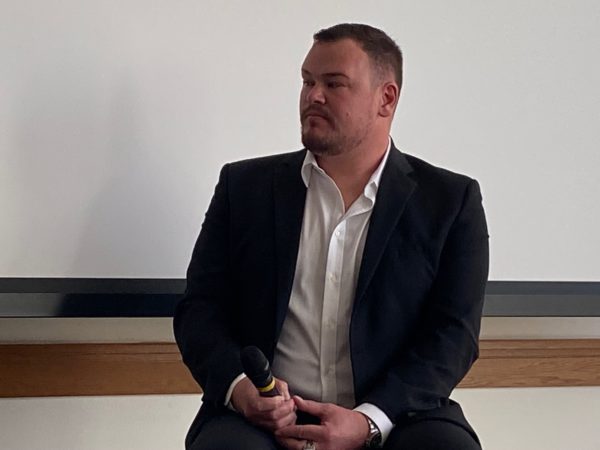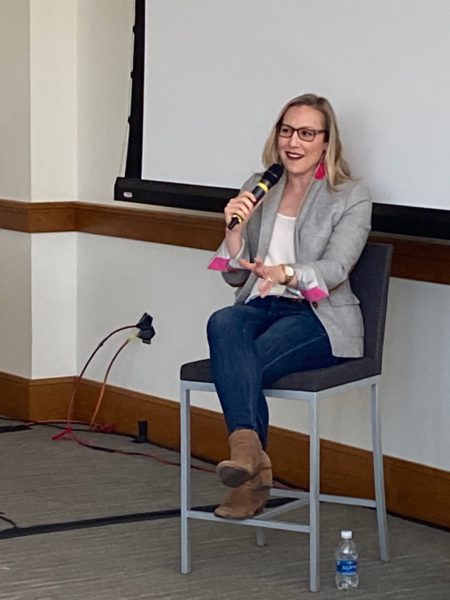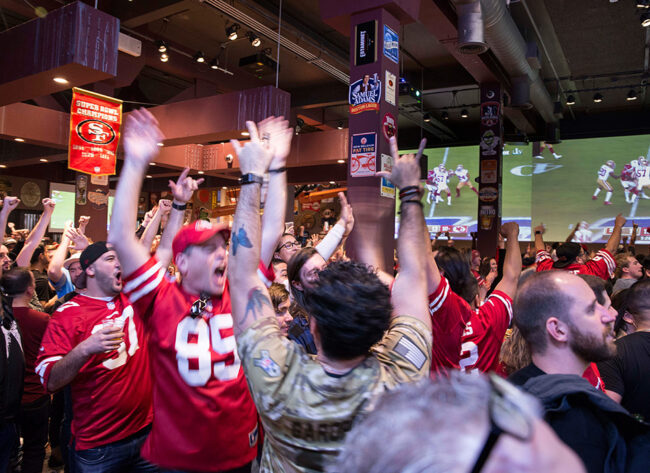PHILADELPHIA – Ryan O’Callaghan, who has been retired from the National Football League due to injuries for more than a decade, abandoned his original plan for his post-retirement years: to end his life.
Instead, the former tackle for the New England Patriots and Kansas City Chiefs finally tackled the secret he’d kept from almost everyone. Five years ago, he revealed that he was gay, and that he’d become addicted to painkillers.
“Not to oversimplify it, but I think you need to fix the reason why you’re abusing the drugs first, which I was abusing because I hated myself and was paranoid about being gay,” O’Callaghan told the Los Angeles Blade. “I fixed that, which then made it easier to quit. I was on painkillers, so there is a chemical dependency, and you need to be responsible on getting off of them. But not relapsing is what fixing the problem helps to not do.”
The 38-year-old Redding, Calif. native told his story Thursday in the keynote portion of Drexel University’s conference, A Catalyst for the Cause: Fostering Greater Equity in Sport. O’Callaghan not only looked back at his own coming out but also had some thoughts about LGBTQ players in the NFL now. Recently released defensive end Carl Nassib and free agent R.K. Russell are not the only ones, he said.

“Two more players are about to come out, probably in this off-season,” O’Callaghan revealed in his conversation with Drexel senior Zeke Goldsmith, a fellow California native fresh off his own interview with Oakland’s own D.Gil. O’Callaghan said he knew of other retired football players who are living their truth, or taking steps toward that goal-line.
“There are a lot of guys who have come out that haven’t come out publicly, so they’re living their life as an openly gay man. They just didn’t write a book or whatever,” said O’Callaghan, whose own memoir, My Life on the Line: How the NFL Damn Near Killed Me and Ended Up Saving My Life, was published in 2019. All the profits from his book go directly to fund the charity he started, The Ryan O’Callaghan Foundation, dedicated to creating more opportunities for LGBTQ+ athletes as well as fostering a sense of community among players.
“There has been more progress made than I think people truly know,” he said. “I talk to a lot of these people and tell them, ‘You don’t have to do it publicly, just live your life.’ And a lot of people have been doing that.”
When Nassib announced he was gay in a 2021 Instagram post, O’Callaghan noted it was a far different experience than when Michael Sam came out before the NFL Draft in 2014.
“They’ve taken a lot of honest steps to do it better. You know, in the beginning, their support for The Trevor Project and GLAAD felt a little lazy. You know, they just wrote a check and that was it,” he said. But O’Callaghan said even this past February’s Night of Pride and last year’s “NFL is Queer” commercial, the league is still not doing enough.
“I still think they need to do more to actually reach the players in the locker room because a high-profile, no-name person coming out would have more of an impact than I think a lot of that stuff combined,” he told the more than 60 students assembled, so many that the university’s grand meeting room ran out of seats and it was standing room just to hear O’Callaghan.
His recommendation to those in authority: Invite gay NFL players back into the locker room to share their experiences, something that he said hasn’t happened since Esera Tuaolo visited in his rookie year.
During the Q&A, O’Callaghan was asked if the NFL should do more to counter anti-LGBTQ legislation, such as anti-trans inclusion laws and “Don’t Say Gay” parental rights laws.
“It would be great for the Miami Dolphins to take a stand like Disney did, but I honestly just don’t see that happening,” he said. “The influence of the NFL could change some things, but I also think a lot of these bills are just trying to fix a problem that doesn’t even exist in the first place.”
After the event, O’Callaghan expounded upon that in a conversation with the Blade. “For a long time, the NCAA has been trying to do the right thing. They’ve set up rules, people followed the rules, and they’re able to participate. It is what it is,” he said,
Also speaking to students was Clovis, Calif. native Kate Scott, who like O’Callaghan is 38, an alum of the University of California, Berkeley, and out.

Scott was hired last year to be the play-by-play voice of the Philadelphia 76ers. She recalled to students that in her interview, she listed all the reasons the team shouldn’t hire her.
“I’m not just a woman,” Scott said, “I’m from the other side of the country and I’m gay. Like, How’s that going to work? They had the most wonderful response, and they said, ‘Kate, if you get this job it is because you’re the best broadcaster, period. That is what we’re trying to honor. We don’t care what that person looks like, whether they’re a man or a woman. We don’t care who they’re married to. We don’t care their religion. We don’t care anything about that. We want the best broadcaster who’s going to hopefully lead us through the next 20 years of 76ers basketball.’”
Scott told the Blade her advice to students is to “find your branch.”
“There’s no ladder in this industry, as I’m sure, you know. There’s just what I like to call an oak tree with a bunch of branches that you just have to kind of go out on a limb and see if it’s a good place to start. If not, come back to the trunk and go out on another,” Scott said. “The more people I talk to who represent all different communities who work in sports media or just media in general, as our friends who work in news, weather and all the different aspects of sports, it’s really small. Work really hard. Overachieve like, Ryan said, Don’t go out there looking for credit. Try to be the best. Getting back to sports, try to be the best team player.”







